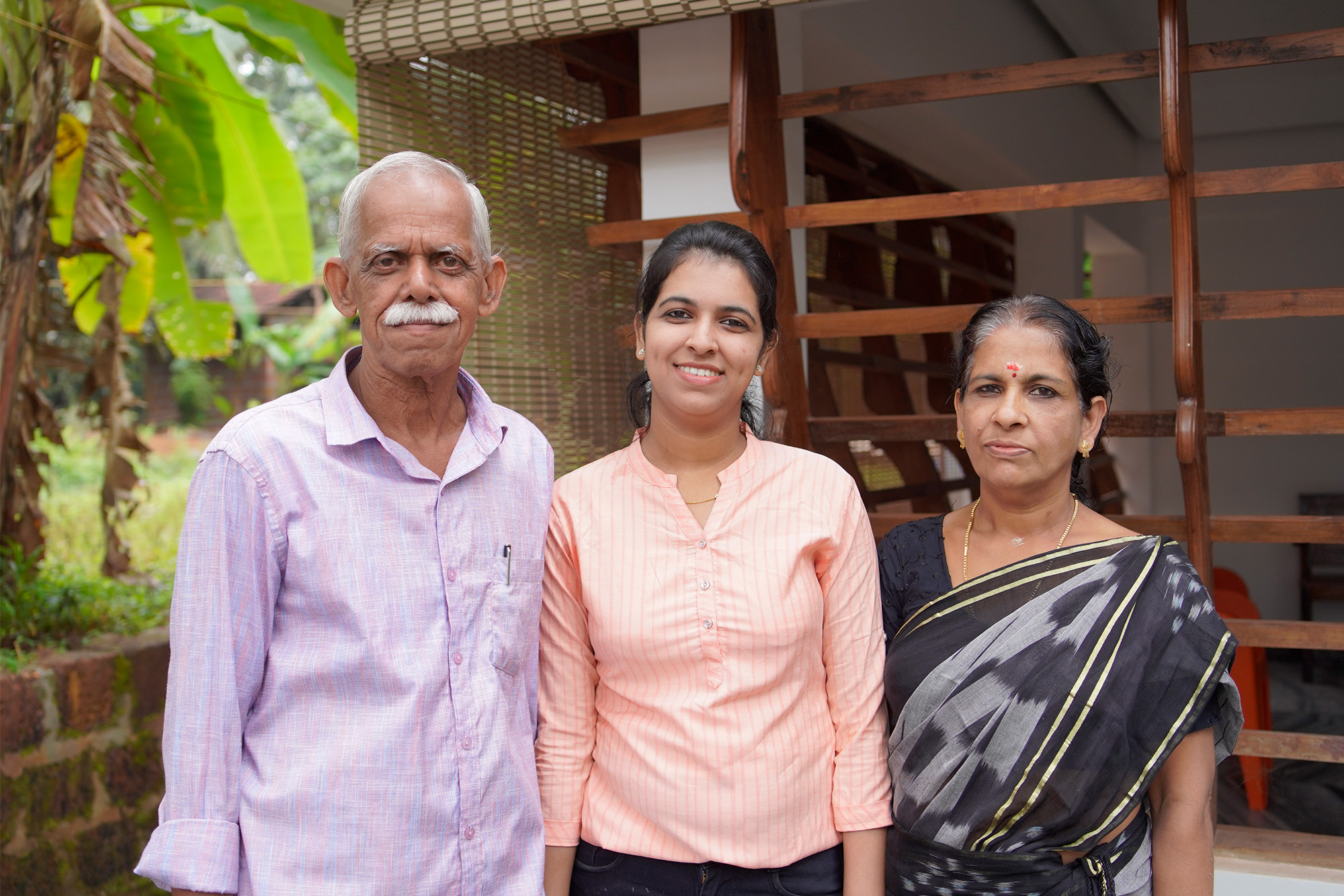Turning down a job offer during campus placement was a big decision for Manjusha M. With a job, she could help support her parents in the small town of Kannur in the southern Indian state of Kerala.
“I got an engineering degree mostly because I’d heard it would help get good jobs,” she said. “The job I was offered during campus placement was at a call centre. I did not want to take it up simply because it wasn’t the career I was looking at.”
Unlike prestigious engineering colleges, where tech companies court students in their final year with job placement opportunities, the same isn’t true for educational institutions in smaller towns. There are limited job opportunities as soon as one graduates, and usually not in the IT field, as Manjusha experienced.

For nearly a year, Manjusha held a teaching position at a local college. But even as she continued teaching, she was also applying for jobs in the IT sector. It was during one such job hunt, in 2019, where she came across an advertisement for CyberShikshaa.
Launched by Microsoft India along with the Data Security Council of India (DSCI) in 2018, CyberShikshaa is a program for skilling female engineering graduates from small towns in the niche field of cybersecurity. It was launched with the belief that even if opportunities don’t exist everywhere, talent does.
“At the time, the government pointed to the lack of talent in cybersecurity professionals in the country and asked if we had any ideas,” said Manju Dhasmana, director for philanthropies at Microsoft Asia. “We decided to turn this challenge into an opportunity. We began planning a program to make sure that we reach young people in small towns who would normally not have access to this kind of opportunity.”
Skilling gaps in the IT sector remain a huge challenge in India. Engineering colleges are often unable to equip their students to meet the requirements that technology companies seek in candidates. This makes engineering graduates, such as Manjusha, unemployable despite having a computer engineering degree.
The skill gap data presents an even grimmer picture when it comes to diversity. According to Dhasmana, in 2018 less than 11% of women worked in cybersecurity in India. “We immediately saw this as an opportunity to bring more diversity into cybersecurity,” she said. “Today, we are at 22%.”
When the teams at Microsoft and DSCI started out, they were clear that for any skilling initiative to be successful, it had to be sustainable and scalable. “This is a movement,” Dhasmana said, “So we had to go in with a clear objective and milestones.”
Over the years, CyberShikshaa has successfully trained 1,100 women and employed more than 800 women through multiple training batches. The modules are four months long with a sharp focus on individual project work.
What sets CyberShikshaa apart is the approach it takes to solve the problem. The program began with the idea that skilling is only useful if it helps the person land a job. However, it wasn’t too long after the launch they realized they had a problem. While students were scoring well in the technical rounds in job interviews, they were lacking in soft skills and would often not get jobs due to a lack of a cultural fit.
The team introduced soft skills in the training and added mentoring from their colleagues within Microsoft and other companies, especially those looking to hire cybersecurity professionals.
Aarti Bindra, managing director at ACPL Systems, an information security company, had difficulty finding qualified engineers as she looked to increase the diversity in her company. Now she had a viable set of candidates.
“Quality has been a concern,” Bindra said. “Candidates come with all kinds of certifications, but very few realize the depth of cybersecurity and find it difficult to fit in. When I learned about CyberShikshaa from DSCI, with whom we work closely, I was excited. It helped us find the right talent and also build gender diversity in our organization.”

For Manjusha, CyberShikshaa was the turning point in her life.
Today, she is working as a cybersecurity associate at ACPL Systems. She landed the job after graduating from the program in the summer of 2019.
At ACPL Systems, she has grown from a Security Operation Centre (SOC) trainee to a SOC analyst and now to a cybersecurity associate, where she works on web application firewalls to protect customers from incoming online threats.
“Most engineering graduates study only to get good scores on their exams. I was the same,” she said. “But the CyberShikshaa course helped me get a very, very clear understanding of the basic concepts. I can see the difference it has made to my career.”
CyberShikshaa hasn’t just equipped Manjusha with technical know-how, it also instilled confidence. “I barely spoke English before I started the course. Now, I deal with clients in foreign countries,” she said. “CyberShikshaa gave me the confidence I needed to do this.”
To create a lasting impact on an entire industry, CyberShikshaa requires scaling. The program has already grown beyond its initial charter of training and placing young women engineers from small towns. In its quest to scale, CyberShikshaa realized that it’s not just a scarcity of cybersecurity talent but also a lack of skilled trainers.
Launched in June 2022, CyberShikshaa for Educators with ICT Academy is the latest addition to the program’s portfolio, providing cybersecurity training to 400 faculty members. The program will go deeper into industry verticals and expand its reach into semi-urban and rural locations of the country.
“Cybersecurity challenges vary between industries. We will focus on specialized training for careers in the banking, financial services and insurance (BFSI) industry, as well as emerging technologies such as artificial intelligence and machine learning, as CyberShikshaa enters its fifth year,” said Vinayak Godse, CEO of DSCI. “Traditional control-based security actions and decisions are being replaced by those based on data and intelligence. The specialized training would prepare CyberShikshaa trained women for this change.”
The aim is to equip more than 10,000 rural, underserved youth to become cybersecurity professionals. And, like Manjusha, not just help them land a job but offer them an opportunity for a career.
“I wouldn’t have been able to get here, make what I do or support my parents if it hadn’t been for CyberShikshaa,” Manjusha said.
Top image: Manjusha M., a CyberShikshaa graduate, works remotely from her home as a cybersecurity associate at ACPL Systems. Photo by Hilal Mansoor for Microsoft.
Abhishek Mande Bhot is an independent writer and editor covering news, lifestyle, and luxury for publications in India and the US.

